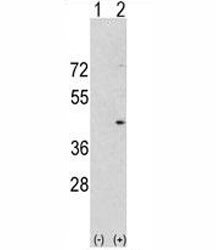Cookie preferences
This website uses cookies, which are necessary for the technical operation of the website and are always set. Other cookies, which increase the comfort when using this website, are used for direct advertising or to facilitate interaction with other websites and social networks, are only set with your consent.
Configuration
Technically required
These cookies are necessary for the basic functions of the shop.
"Allow all cookies" cookie
"Decline all cookies" cookie
CSRF token
Cookie preferences
Currency change
Customer-specific caching
FACT-Finder tracking
Individual prices
Selected shop
Session
Comfort functions
These cookies are used to make the shopping experience even more appealing, for example for the recognition of the visitor.
Note
Show the facebook fanpage in the right blod sidebar
Statistics & Tracking
Affiliate program
Conversion and usertracking via Google Tag Manager
Track device being used
| Item number | Size | Datasheet | Manual | SDS | Delivery time | Quantity | Price |
|---|---|---|---|---|---|---|---|
| NSJ-F50015-0.08ML | 80 µl | - | - |
3 - 10 business days* |
326.00€
|
||
| NSJ-F50015-0.4ML | 400 µl | - | - |
3 - 10 business days* |
702.00€
|
If you have any questions, please use our Contact Form.
You can also order by e-mail: info@biomol.com
Larger quantity required? Request bulk
You can also order by e-mail: info@biomol.com
Larger quantity required? Request bulk
In 1X PBS, pH 7.4, with 0.09% sodium azide. Chromosomal segregation during mitosis as well as... more
Product information "Anti-Aurora-A"
In 1X PBS, pH 7.4, with 0.09% sodium azide. Chromosomal segregation during mitosis as well as meiosis is regulated by kinases and phosphatases. The Aurora kinases, members of the Ser/Thr protein kinase family, associate with microtubules during chromosome movement and segregation. Auroria kinase A may play a role in cell cycle regulation during anaphase and/or telophase, in relation to the function of the centrosome/spindle pole region during chromosome segregation. It may be involved in microtubule formation and/or stabilization. This protein has also been postulated to play a key role during tumor development and progression. Aurora kinase A localizes on centrosomes in interphase cells and at each spindle pole in mitosis. It is highly expressed in testis, weakly in skeletal muscle, thymus and spleen, and also highly expressed in colon, ovarian, prostate, neuroblastoma, breast and cervical cancer cell lines. Expression is cell-cycle regulated, low in G1/S, accumulates during G2/M, and decreases rapidly afterward. Defects in Aurora kinase A are responsible for numerical centrosome aberrations including aneuploidy. Protein function: Mitotic serine/threonine kinases that contributes to the regulation of cell cycle progression. Associates with the centrosome and the spindle microtubules during mitosis and plays a critical role in various mitotic events including the establishment of mitotic spindle, centrosome duplication, centrosome separation as well as maturation, chromosomal alignment, spindle assembly checkpoint, and cytokinesis. Required for initial activation of CDK1 at centrosomes. Phosphorylates numerous target proteins, including ARHGEF2, BORA, BRCA1, CDC25B, DLGP5, HDAC6, KIF2A, LATS2, NDEL1, PARD3, PPP1R2, PLK1, RASSF1, TACC3, p53/TP53 and TPX2. Regulates KIF2A tubulin depolymerase activity. Required for normal axon formation. Plays a role in microtubule remodeling during neurite extension. Important for microtubule formation and/or stabilization. Also acts as a key regulatory component of the p53/TP53 pathway, and particularly the checkpoint-response pathways critical for oncogenic transformation of cells, by phosphorylating and stabilizing p53/TP53. Phosphorylates its own inhibitors, the protein phosphatase type 1 (PP1) isoforms, to inhibit their activity. Necessary for proper cilia disassembly prior to mitosis. [The UniProt Consortium]
| Keywords: | Anti-AIK, Anti-AURKA, Anti-ARK-1, Anti-hARK1, Anti-Aurora 2, EC=2.7.11.1, Anti-Aurora kinase A, Anti-Aurora-related kinase 1, Anti-Aurora/IPL1-related kinase 1, Anti-Breast tumor-amplified kinase, Anti-Serine/threonine-protein kinase 6, Aurora-A Antibody |
| Supplier: | NSJ Bioreagents |
| Supplier-Nr: | F50015 |
Properties
| Application: | WB, IF, FC, ELISA |
| Antibody Type: | Polyclonal |
| Conjugate: | No |
| Host: | Rabbit |
| Species reactivity: | human |
| Immunogen: | A portion of amino acids 364-392 from the human protein was used as the immunogen for this Aurora-A antibody. |
| Format: | Purified |
Database Information
| KEGG ID : | K11481 | Matching products |
| UniProt ID : | O14965 | Matching products |
| Gene ID | GeneID 6790 | Matching products |
Handling & Safety
| Storage: | -20°C |
| Shipping: | +4°C (International: +4°C) |
Caution
Our products are for laboratory research use only: Not for administration to humans!
Our products are for laboratory research use only: Not for administration to humans!
Information about the product reference will follow.
more
You will get a certificate here
Viewed











